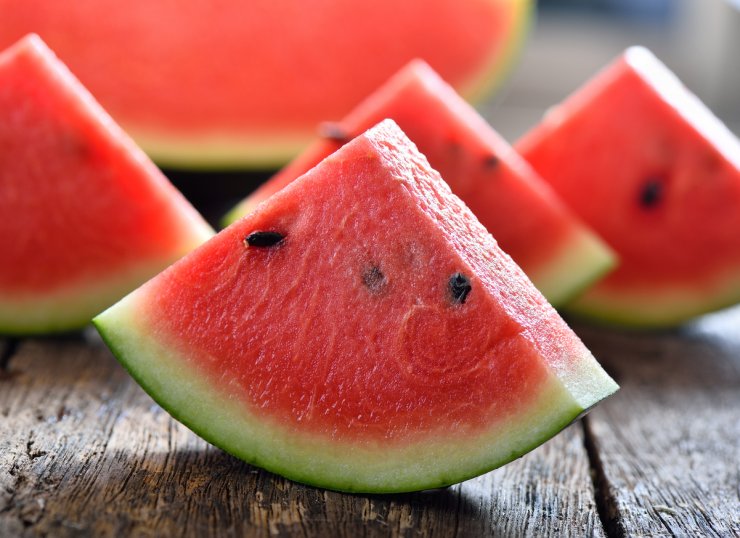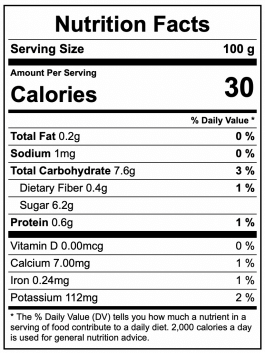
Watermelon slices

Watermelon slices
Watermelon is loaded—loaded in vitamins and minerals, that is, particularly Vitamin C. According to the USDA, two cups of watermelon have 80 calories, no fat, vitamin A (8% of daily value), B6 (6%) and C (25%), potassium (6%), magnesium (6%), thiamin (8%), and phosphorus (2%).
Even the rind is good for you; it’s high in vitamins B and C.
And if you’re up to separating, sprouting, shelling, and drying them, there are 10 grams of protein in 1 ounce of watermelon seeds. The seeds are also a source of iron, zinc, and fiber.
Here are the nutrients in a small piece (100 grams) of watermelon:

The main plant compounds in watermelons are:
- Lycopene: A red pigment and antioxidant, lycopene has been extensively studied for its beneficial health effects (only in red watermelon).
- Beta carotene: An antioxidant that often gives foods a yellow or orange hue, beta carotene is converted into vitamin A in your body.
- Citrulline: An amino acid that plays an important role in the human body’s urea cycle, which removes nitrogen from the blood and helps convert it to urine. Citrulline helps create arginine, an amino acid in which some people are deficient.
Beneficial mineral content of watermelon includes boron, calcium, copper, iron, magnesium, manganese, phosphorus, potassium, selenium, sodium, and zinc.
Did you know all these nutrition facts about watermelon? Please tell us what you think.



